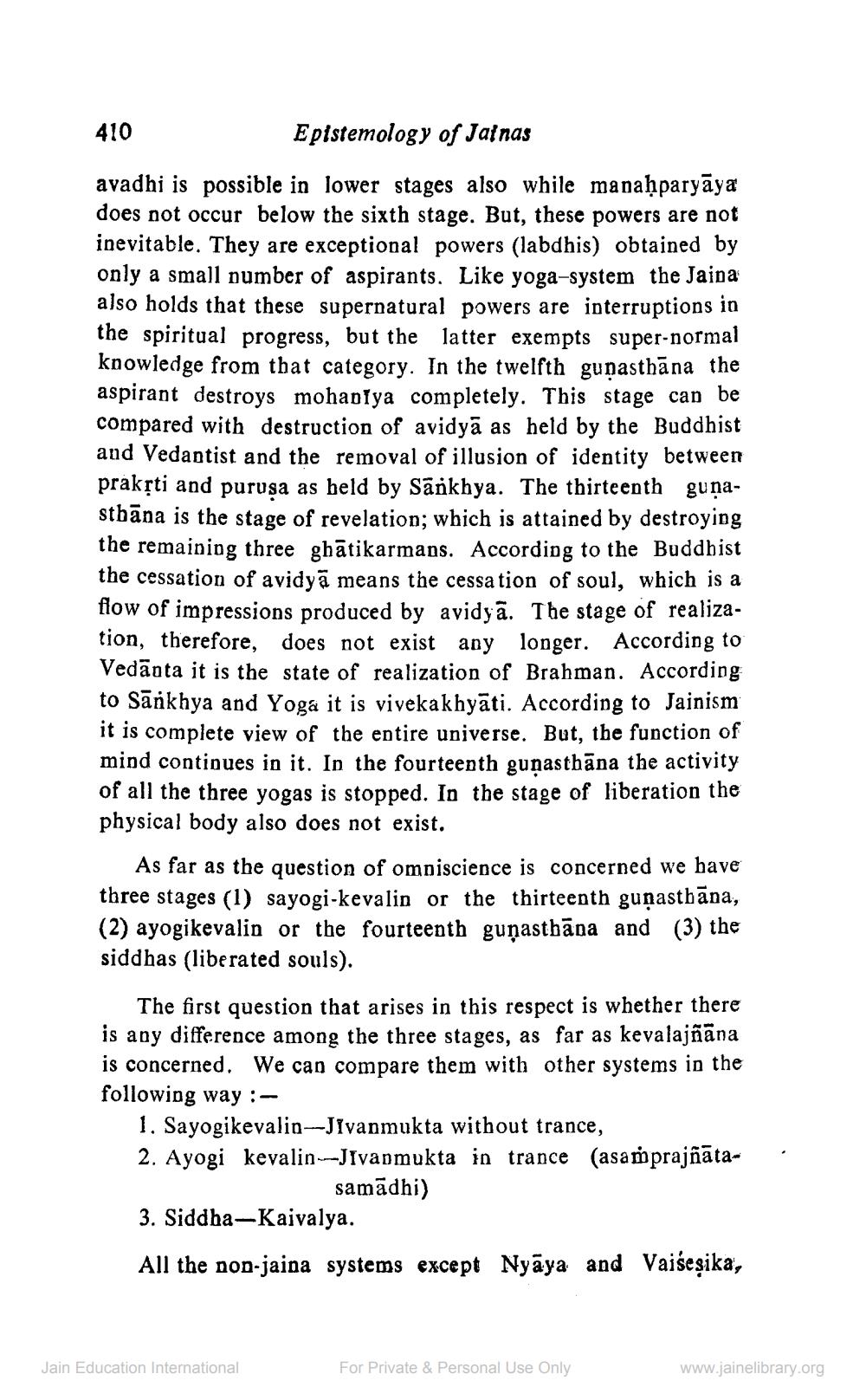________________
410
Epistemology of Jalnas
avadhi is possible in lower stages also while manaḥparyāya does not occur below the sixth stage. But, these powers are not inevitable. They are exceptional powers (labdhis) obtained by only a small number of aspirants. Like yoga-system the Jaipa also holds that these supernatural powers are interruptions in the spiritual progress, but the latter exempts super-normal knowledge from that category. In the twelfth gunasthāna the aspirant destroys mohapiya completely. This stage can be compared with destruction of avidyā as held by the Buddhist aud Vedantist and the removal of illusion of identity between praksti and purusa as held by Sankhya. The thirteenth guņastbāna is the stage of revelation; which is attained by destroying the remaining three ghātikarmans. According to the Buddhist the cessation of avidyā means the cessation of soul, which is a flow of impressions produced by avidyā. The stage of realization, therefore, does not exist any longer. According to Vedānta it is the state of realization of Brahman. According to Sānkhya and Yoga it is vivekakhyāti. According to Jainism it is complete view of the entire universe. But, the function of mind continues in it. In the fourteenth guṇasthāna the activity of all the three yogas is stopped. In the stage of liberation the physical body also does not exist.
As far as the question of omniscience is concerned we have three stages (1) sayogi-kevalin or the thirteenth gunastbāna, (2) ayogikevalin or the fourteenth gunastbāna and (3) the siddhas (liberated souls).
The first question that arises in this respect is whether there is any difference among the three stages, as far as kevalajñāna is concerned. We can compare them with other systems in the following way :
1. Sayogikevalin--Jivanmukta without trance, 2. Ayogi kevalin-JIvanmukta in trance (asamprajñāta.
samādhi) 3. Siddha-Kaivalya. All the non-jaina systems except Nyāya and Vaišeşika,
.
Jain Education International
For Private & Personal Use Only
www.jainelibrary.org




